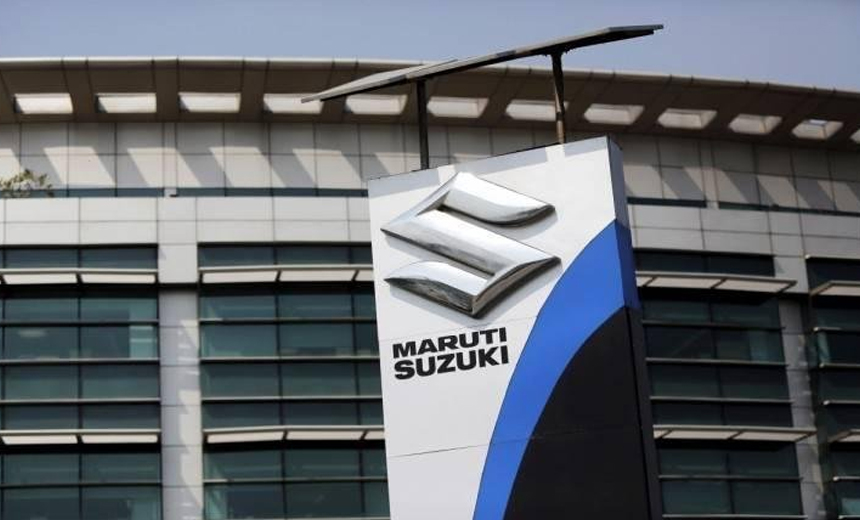Maruti Suzuki Implementing RPA, AI and IoT Initiatives
The Company Is Building a Data Lake Fundamental to Its Analytics Strategy
Maruti Suzuki is accelerating digital transformation with key initiatives underway around robotic process automation (RPA), artificial intelligence (AI) and IoT. Additionally, the company is placing a big bet on AI and analytics to assess its rapidly growing data to drive meaningful insights and business decisions.
See Also: Key Security Challenges and Tooling Approaches for 2024: Survey Results Analysis
RPA for Quicker Turnaround and Lower Error Rates
India's largest car maker is currently working toward automating most of the routine mundane work and processes through the use of robotics in the areas of finance, supply chain and other business areas. After successfully conducting proofs of concept (POCs), the company is now undergoing mass adoption of RPA.
"My experience is that the ROI on these projects is very quick as you not only save a lot of time with faster turnaround but also improve process efficiencies with error rates coming down significantly, said Rajesh Uppal, executive director - IT, CIO and CHRO, Maruti Suzuki.
Uppal is seeing good traction for RPA adoption among the employees and doesn't see the project impacting jobs. "RPA will free up our employees from mundane work, letting us divert them to higher value jobs. I see new kinds of jobs getting created. So the number of jobs won't get impacted. The only thing that changes is the role and the content of the job, for which we are working toward re-skilling these people for a different kind of job," he explains.
AI-Enabled Chatbot for HR Support
Maruti Suzuki is leveraging AI by carrying out multiple pilots around different use cases, including voice-enabled systems and chatbots. The company is currently in the process of deploying an AI-enabled chatbot for employees for HR support, which will soon go live. The chatbot will be able to answer any queries the employees may have relating to the HR function. This is part of the company's overall thrust on enabling better connect for the employees with the company. The chatbot will be integrated with Maruti Suzuki's employee platform - HR Assist - which was launched last year.
The chatbot initiative will be extended to the other functions within the company as well. The chatbot will be text-based, but will eventually be made voice-based by incorporating natural language processing (NLP).
Enabling Industry 4.0 Adoption With IoT
As part of the move toward Industry 4.0 adoption, Maruti Suzuki is working on the whole equipment integration with IT using IoT, especially in the batch production part of its manufacturing operations. This includes the machines shops for engine components, press shops for body panels and injection boarding. Based on this data produced by the machinery, the company is building use cases around planning manufacturing volumes, improving machinery health and efficiencies, and predicting maintenance.
Data-Driven Decisions Using AI and Analytics
A key highlight of Maruti Suzuki's digital transformation strategy is a major thrust around data. It has embarked upon an AI and analytics journey directed toward making sense of the company's large and growing data repository and how to best use it to drive meaningful insights and better decisions. For this, POCs are currently underway.
As part of its huge data thrust, the company is building a data lake, which will be fundamental to its analytics strategy. It is in the process of shortlisting the technology for its data lake and working on the whole platform enablement. The data lake platform will have data coming from various sources, including the machines/equipment on the shop floor, customer interactions, social media, connected car system and business applications, which will all be co-related to get meaningful output.
"Going forward, the ability to decipher the data and take the right decisions at the appropriate time based on that will be key for us to succeed and remain competitive. This is more so with our data volumes growing exponentially with the use of IoT and our recently launched connected car platform," Uppal says.
In the first phase, the company will start leveraging data analytics for insights around operational areas like understanding customer, supply chain and distribution data to help forecast demand, predict quality issues, and improve employee productivity and system efficiencies.
In the second stage of its analytics journey, Maruti Suzuki will be looking at driving insights that can go as inputs into designing better products and improving vehicle efficiencies. For instance, a lot of data around vehicle performance, fuel levels, over-speeding and driving behavior is now coming from the company's connected car platform. This data can be analyzed to understand the car behavior in different geographies and can provide insights into improving product features.
This article was previously published on the DynamicCIO website on March 13, 2019.













